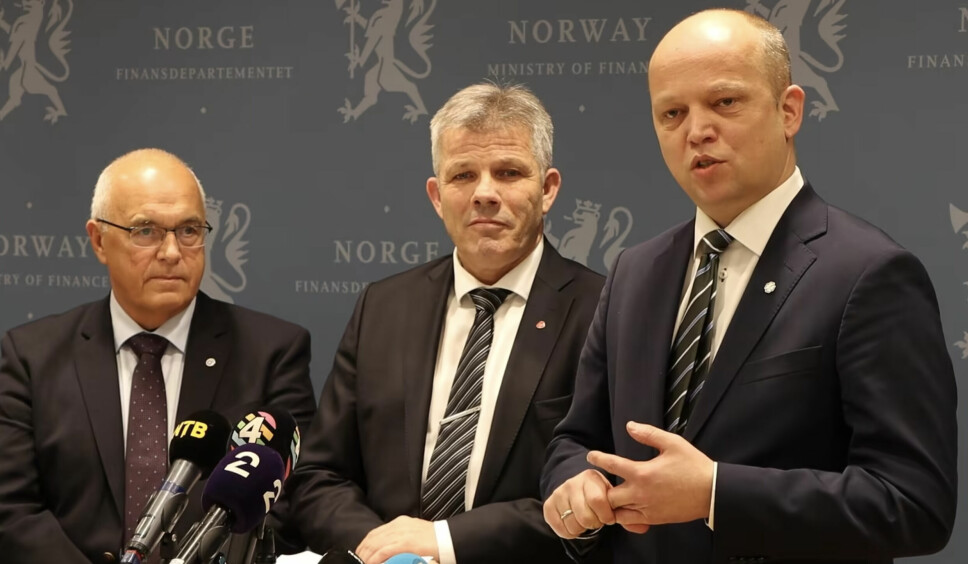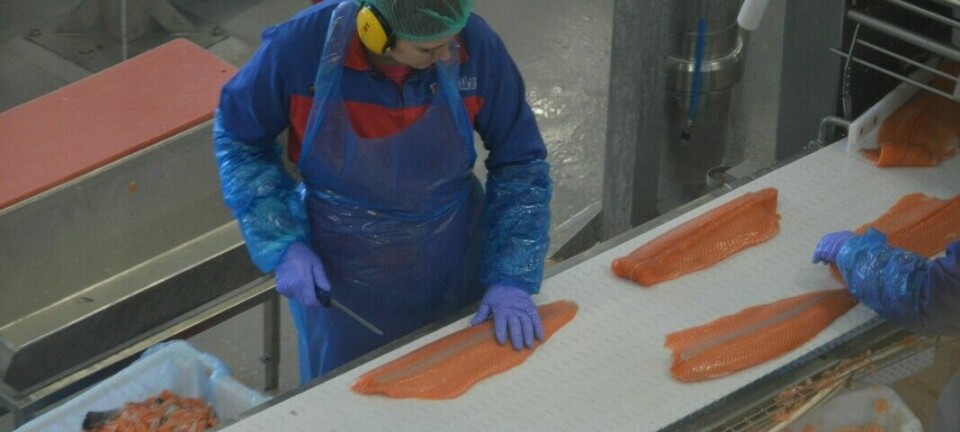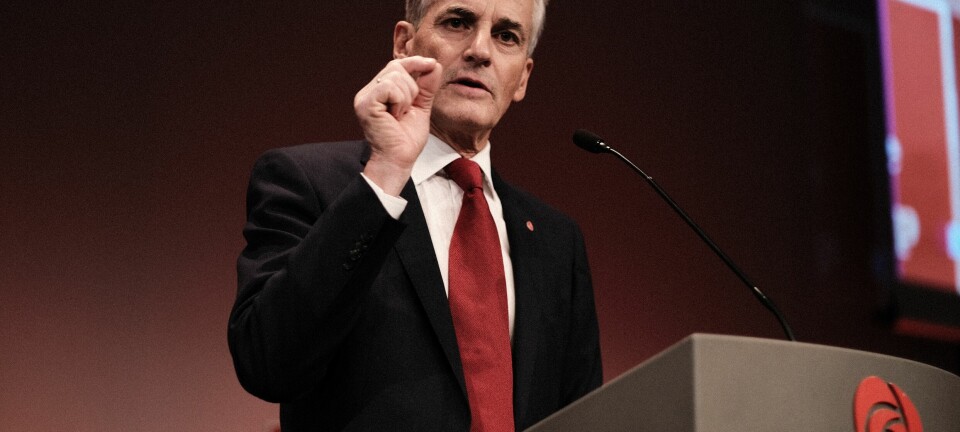
Norway’s salmon tax will be based on real income, pledge ministers
The government in Oslo is considering establishing an independent body to determine standard prices as a basis for the tax, the Ministry of Finance said today
Norway’s government has told seafood industry organisations that a proposed “resource” tax of up to 40% of the value added to salmon and trout during their time spent reaching harvest size in the country’s fjords will be based on what the farmers actually get for their fish, rather than the top prices recorded on the Nasdaq index. Dronen
In a press conference after this morning’s meeting between ministers and the organisations, Paul Birger Torgnes, chairman of Seafood Norway, the national association for the fisheries and aquaculture industry, said that the parties had been clear, even if they have different opinions in certain areas of the proposed tax.
“We pay tax, and we already pay additional tax in the form of production tax, and we also pay for the permits we have. We have said that we are willing to pay even more tax,” said Torgnes.
Removing uncertainty
“So, we have received a concrete input today which helps to remove some of the uncertainty, and we appreciate that. We must take the proposal we have received on how this can be done with us and look at it. We believe the ministers when they say that it is real income that should be the basis [for the tax].”
Finance minister Trygve Slagsvold Vedum (Centre Party) said that the aim is to find the market price for the salmon, and that there are several possible ways to do that. One of these alternatives is therefore to establish an independent body to determine standard prices.
Several farming companies have previously warned that starting from the standard price for salmon recorded on the Nasdaq index has very negative consequences, as the companies will risk being taxed for higher prices than they themselves have managed to achieve.
“This has a particularly negative impact on secondary processing, which is normally based on fixed price contracts, not spot prices. There is simply no one who is willing to enter into fixed-price contracts anymore,” stated Frode Arntsen, chief executive of SalMar when the company sent out lay-off notices to 851 employees.
Shifting profits
The government initially proposed using standard prices from an independent source such as the Nasdaq index to calculate the amount of resource tax that fish farmers will have to pay. Without independent market prices, they believe there is a danger that the companies will shift their profits to other parts of the group that do not pay resource tax, aka the salmon tax. Where there are independent customers, contract prices will form the basis for the calculation of the tax.
“It has always been clear that the price must be real and reflect an independent market price. In order for the ground rent tax to work as intended, it must apply to the profits in the industry. A standard price must take into account quality differences and sizes of the fish. It has never been the government’s intention that all salmon should be valued at one price, as certain players have tried to portray in the debate recently,” Vedum said in a press release.
Fisheries and oceans minister Bjørnar Skjæran (Labour Party) said: “There will be resource tax. In the proposal presented to the Parliament, we will ensure a taxation that builds on the [government’s] goals of more jobs, greater value creation and increased export income from the aquaculture industry.
Aimed at the biggest
“For the government, it has been important that the municipalities [that host fish farming] come out better than today, and that the bottom deduction (tax-free biomass allowance) is of such a size that it is mainly the largest players who pay resource tax.”
The Ministry of Finance said it was important that the tax system does not allow for tax adjustments and does not entail unreasonable administrative burdens for either the industry or the tax authorities.
“The aim is to find the market price for the salmon, and there are several possible ways to do that. We have good experience with a standard price council for the petroleum tax (another resource tax). It is among the options we are looking at, and an option that I wanted to discuss with the industry players in today’s meeting. I would like to emphasise again that there will be no ground rent tax on processing,” said Vedum.
In a report from the Aquaculture Tax Committee, various methods are discussed for finding an independent market price. Standard prices based on prices from Nasdaq, as proposed in the consultation note, are in line with the Aquaculture Tax Committee's proposal for the design of a ground rent tax. The committee also mentions a standard price council as a possible alternative.

























































